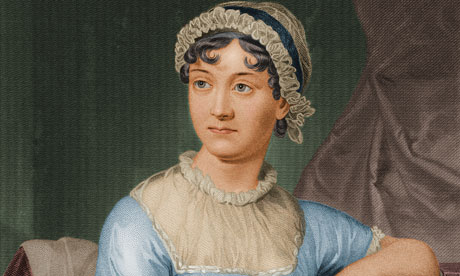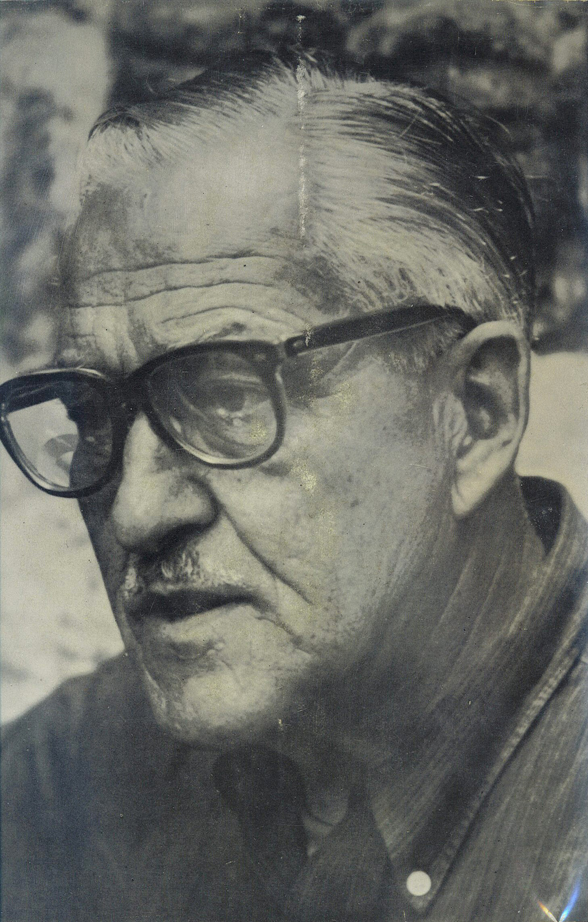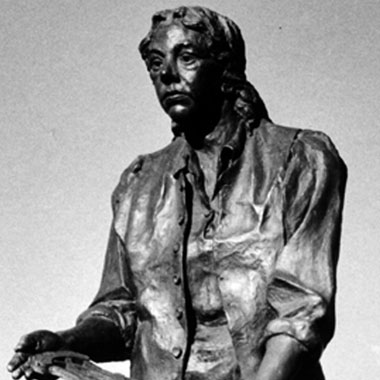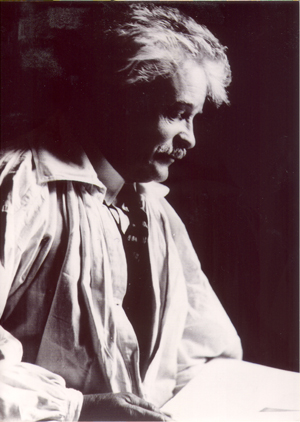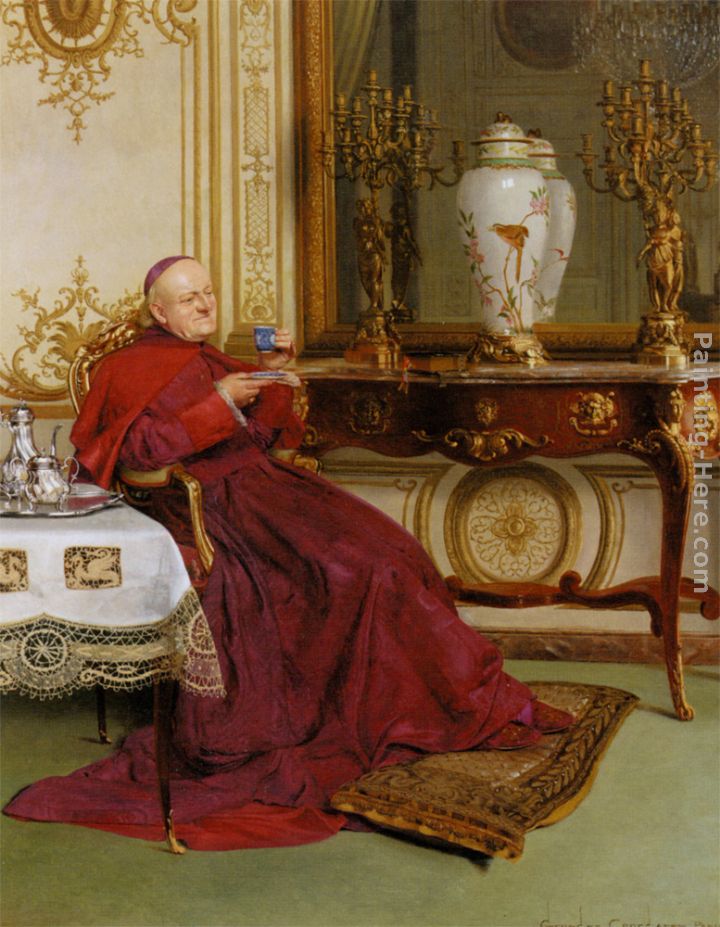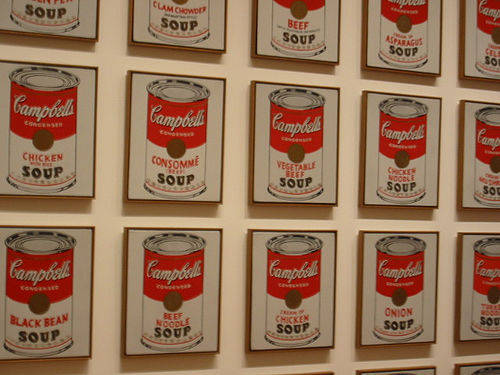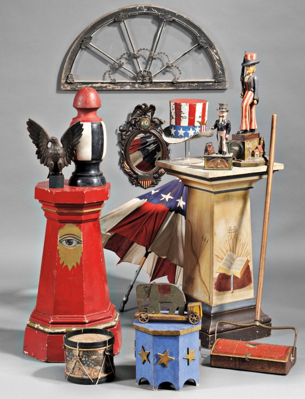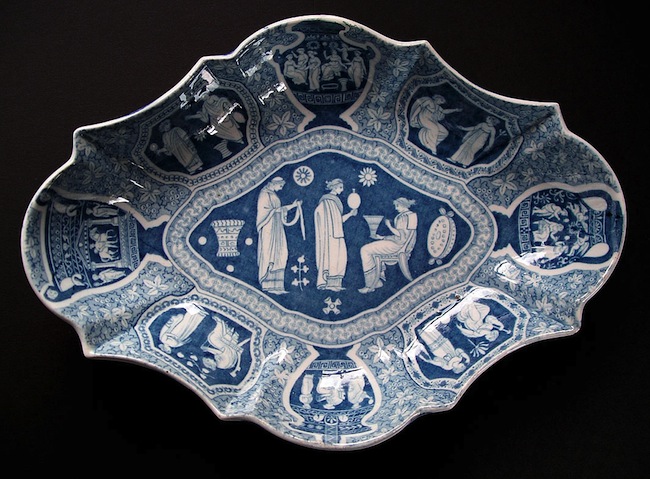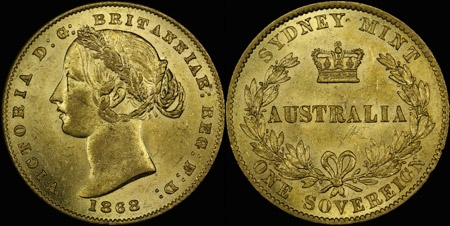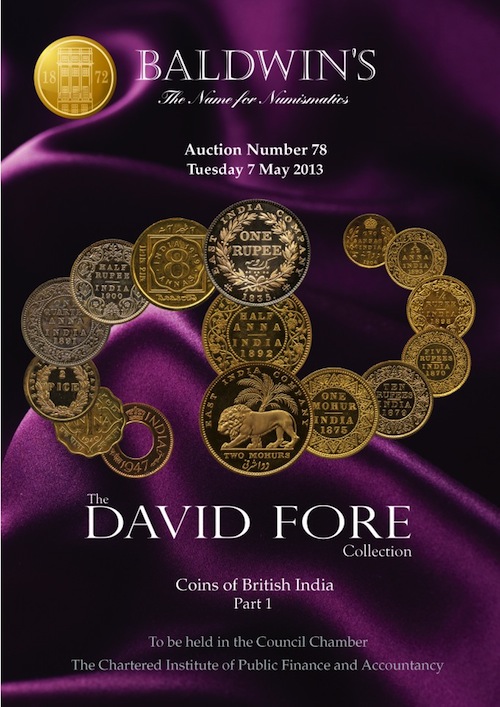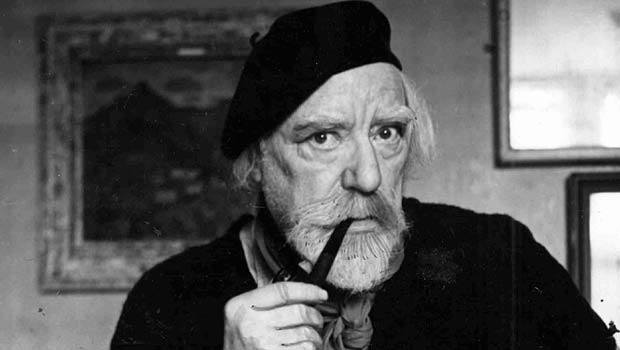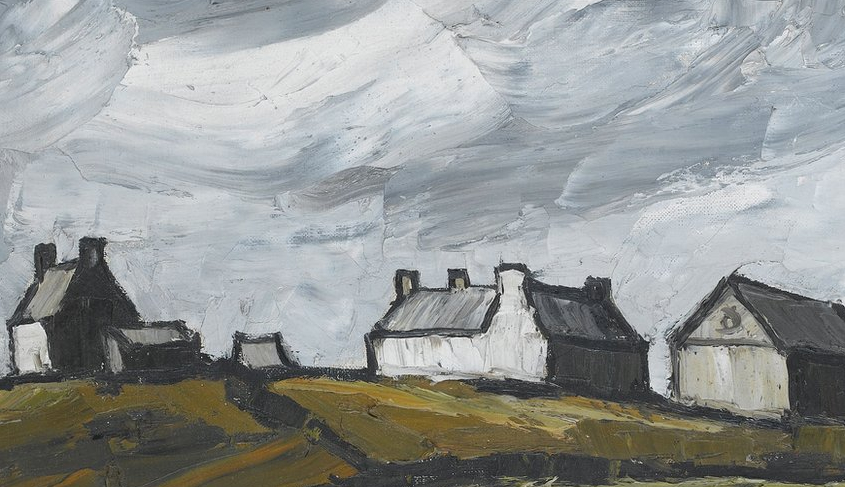Jane Austen was an English novelist whose books, set among the English middle and upper classes, are notable for their wit, social observation and insights into the lives of early 19th century women.
Jane Austen was born on 16 December 1775 in the village of Steventon in Hampshire. She was one of eight children of a clergyman and grew up in a close-knit family. She began to write as a teenager. In 1801 the family moved to Bath. After the death of Jane’s father in 1805 Jane, her sister Cassandra and their mother moved several times eventually settling in Chawton, near Steventon.
Jane’s brother Henry helped her negotiate with a publisher and her first novel, ‘Sense and Sensibility’, appeared in 1811. Her next novel ‘Pride and Prejudice’, which she described as her “own darling child” received highly favourable reviews. ‘Mansfield Park’ was published in 1814, then ‘Emma’ in 1816. ‘Emma’ was dedicated to the prince regent, an admirer of her work. All of Jane Austen’s novels were published anonymously.
In 1816, Jane began to suffer from ill-health, probably due to Addison’s disease. She travelled to Winchester to receive treatment, and died there on 18 July 1817. Two more novels, ‘Persuasion’ and ‘Northanger Abbey’ were published posthumously and a final novel was left incomplete.
Biographical Notice of the Author
The following pages are the production of a pen which has already contributed in no small degree to the entertainment of the public. And when the public, which has not been insensible to the merits of Sense and Sensibility, Pride and Prejudice, Mansfield Park, and Emma, shall be informed that the hand which guided that pen is now mouldering in the grave, perhaps a brief account of Jane Austen will be read with a kindlier sentiment than simple curiosity.
Short and easy will be the task of the mere biographer. A life of usefulness, literature, and religion, was not by any means a life of event. To those who lament their irreparable loss, it is consolatory to think that, as she never deserved disapprobation, so, in the circle of her family and friends, she never met reproof; that her wishes were not only reasonable, but gratified; and that to the little disappointments incidental to human life was never added, even for a moment, an abatement of goodwill from any who knew her.
Jane Austen was born on the 16th of December, 1775, at Steventon, in the county of Hants. Her father was Rector of that parish upwards of forty years. There he resided, in the conscientious and unassisted discharge of his ministerial duties, until he was turned of seventy years. Then he retired with his wife, our authoress, and her sister, to Bath, for the remainder of his life, a period of about four years. Being not only a profound scholar, but possessing a most exquisite taste in every species of literature, it is not wonderful that his daughter Jane should, at a very early age, have become sensible to the charms of style, and enthusiastic in the cultivation of her own language. On the death of her father she removed, with her mother and sister, for a short time, to Southampton, and finally, in 1809, to the pleasant village of Chawton, in the same county. From this place she sent into the world those novels, which by many have been placed on the same shelf as the works of a D’Arblay and an Edgeworth. Some of these novels had been the gradual performances of her previous life. For though in composition she was equally rapid and correct, yet an invincible distrust of her own judgment induced her to withhold her works from the public, till time and many perusals had satisfied her that the charm of recent composition was dissolved. The natural constitution, the regular habits, the quiet and happy occupations of our authoress, seemed to promise a long succession of amusement to the public, and a gradual increase of reputation to herself. But the symptoms of a decay, deep and incurable, began to shew themselves in the commencement of 1816. Her decline was at first deceitfully slow; and until the spring of this present year, those who knew their happiness to be involved in her existence could not endure to despair. But in the month of May, 1817, it was found advisable that she should be removed to Winchester for the benefit of constant medical aid, which none even then dared to hope would be permanently beneficial. She supported, during two months, all the varying pain, irksomeness, and tedium, attendant on decaying nature, with more than resignation, with a truly elastic cheerfulness. She retained her faculties, her memory, her fancy, her temper, and her affections, warm, clear, and unimpaired, to the last. Neither her love of God, nor of her fellow creatures flagged for a moment. She made a point of receiving the sacrament before excessive bodily weakness might have rendered her perception unequal to her wishes. She wrote whilst she could hold a pen, and with a pencil when a pen was become too laborious. The day preceding her death she composed some stanzas replete with fancy and vigour. Her last voluntary speech conveyed thanks to her medical attendant; and to the final question asked of her, purporting to know her wants, she replied, ‘I want nothing but death.’
She expired shortly after, on Friday the 18th of July, 1817, in the arms of her sister, who, as well as the relator of these events, feels too surely that they shall never look upon her like again.
Jane Austen was buried on the 24th of July, 1817, in the cathedral church of Winchester, which, in the whole catalogue of its mighty dead, does not contain the ashes of a brighter genius or sincerer Christian.
Of personal attractions she possessed a considerable share. Her stature was that of true elegance. It could not have been increased without exceeding the middle height. Her carriage and deportment were quiet, yet graceful. Her features were separately good. Their assemblage produced an unrivalled expression of that cheerfulness, sensibility, and benevolence, which were her real characteristics. Her complexion was of the finest texture. It might with truth be said, that her eloquent blood spoke through her modest cheek. Her voice was extremely sweet. She delivered herself with fluency and precision. Indeed she was formed for elegant and rational society, excelling in conversation as much as in composition. In the present age it is hazardous to mention accomplishments. Our authoress would, probably, have been inferior to few in such acquirements, had she not been so superior to most in higher things. She had not only an excellent taste for drawing, but, in her earlier days, evinced a great power of hand in the management of the pencil. Her own musical attainments she held very cheap. Twenty years ago they would have been thought more of and twenty years hence many a parent will expect their daughters to be applauded for meaner performances. She was fond of dancing, and excelled in it. It remains now to add a few observations on that which her friends deemed more important, on those endowments which sweetened every hour of their lives.
If there be an opinion current in the world, that perfect placidity of temper is not reconcilable to the most lively imagination, and the keenest relish for wit, such an opinion will be rejected for ever by those who have had the happiness of knowing the authoress of the following works. Though the frailties, foibles, and follies of others could not escape her immediate detection, yet even on their vices did she never trust herself to comment with unkindness. The affectation of candour is not uncommon; but she had no affectation. Faultless herself, as nearly as human nature can be, she always sought, in the faults of others, something to excuse, to forgive or forget. Where extenuation was impossible, she had a sure refuge in silence. She never uttered a hasty,a silly or a severe expression. In short, her temper was as polished as her wit. Nor were her manners inferior to her temper. They were of the happiest kind. No one could be often in her company without a strong desire of obtaining her friendship, and cherishing a hope of having obtained it. She was tranquil without reserve or stiffness; and communicative without intrusion or self-sufficiency. She became an authoress entirely from taste and inclination. Neither the hope of fame nor profit were mixed with her early motives. Most of her works, as before observed, were composed many years previous to their publication. It was with extreme difficulty that her friends, whose partiality she suspected whilst she honoured their judgment, could prevail on her to publish her first work. Nay, so persuaded was she that its sale would not repay the expense of publication, the she actually made a reserve from her modest income to meet the expected loss. She could scarcely believe what she termed her great good fortune whenSense and Sensibility produced a clear profit of £150. Few so gifted were so truly unpretending. She regarded the above sum as a prodigious recompense for that which had cost her nothing. Her readers, perhaps, will wonder that such a work produced so little at a time when some authors received more guineas than they have written lines. The works of our authoress, however, may live as long as those which have burst on the world with more éclat. But the public has not been unjust; our authoress was far from thinking it so. Most gratifying to her was the applause which from time to time reached her ears from those who were competent to discriminate. Still, in spite of such applause, so much did she shrink from notoriety, that no accumulation of fame would have induced her, had she lived, to affix her name to any productions of her pen. In the bosom of her own family she talked of them freely, thankful for praise, open to remark, and submissive to criticism. But in public she turned away from any allusion to the character of the authoress. She read aloud with very great taste and effect. Her own works, probably, were never heard so much to advantage as from her own mouth; for she partook largely in all the best gifts of the comic muse. She was a warm and judicious admirer of landscape, both in nature and on canvass. At a very early age she was enamoured of Gilpin on the Picturesque; and she seldom changed her opinions either on books or men.
Her reading was very extensive in history and belles lettres; and her memory extremely tenacious. Her favourite moral writers were Johnson in Prose, and Cowper in verse. It is difficult to say at what age she was not intimately acquainted with the merits and defects of the best essays and novels in the English language. Richardson’s power of creating, and preserving the consistency of his characters, as particularly exemplified in Sir Charles Grandison, gratified the natural discrimination of her mind, whilst her taste secured her from the errors of his prolix style and tedious narrative. She did not rank any work of Fielding quite so high. Without the slightest affectation she recoiled from every thing gross. Neither nature, wit, nor humor, could make her amends for so very low a scale of morals.
Her power of inventing characters seems to have been intuitive, and almost unlimited. She drew from nature; but, whatever may have been surmised to the contrary, never from individuals.
The style of her familiar correspondence was in all respects the same as that of her novels. Everything thing came finished from her pen; for on all subjects she had ideas as clear as her expressions were well chosen. It is not hazarding too much to saw that she never dispatched a note or letter unworthy of publication.
One trait remains to be touched on. It makes all others unimportant. She was thoroughly religious and devout; fearful of giving offence to God, and incapable of feeling it towards any fellow creature. On serious subjects she was well-instructed, both by reading and meditation, and her opinions accorded strictly with those of our Established Church.
London, Dec 13, 1817
Jane Austen’s Last Will and Testament
 When Jane Austen died in Winchester on July 18, 1817, the bond between the sisters caused Cassandra to write, “I have lost a treasure, such a sister, such a friend as never can have been surpassed. She was the sun of my life, the gilder of every pleasure, the soother of every sorrow; I had not a thought concealed from her, and it is as if I had lost a part of myself. I loved her only too well — not better than she deserved, but I am conscious that my affection for her made me sometimes unjust to and negligent of others…”
When Jane Austen died in Winchester on July 18, 1817, the bond between the sisters caused Cassandra to write, “I have lost a treasure, such a sister, such a friend as never can have been surpassed. She was the sun of my life, the gilder of every pleasure, the soother of every sorrow; I had not a thought concealed from her, and it is as if I had lost a part of myself. I loved her only too well — not better than she deserved, but I am conscious that my affection for her made me sometimes unjust to and negligent of others…”
Jane, too, felt Cassandra to be her dearest and best friend. She left her the majority of her estate, a not small compensation to a sister who had little to her call her own. What is remarkable is the length of such a testament when you consider that it was written by one of the premier writers of the English language. The two bequests that she did make are sweet remembrances for services in life. Jane’s brother, Henry, had worked steadily on behalf of Jane in order to see her books published. Early in 1816, the bank which he was a partner in failed. Henry, recently widowed, not only lost all of his own savings, but also that of his servants (possibly including his longtime cook, Madame Bigeon) and many thousands of pounds borrowed from Edward Austen and his Uncle Leigh Perrot.
I Jane Austen of the Parish of Chawton do by this my last Will & Testament give and bequeath to my dearest Sister Cassandra Elizth every thing of which I may die possessed, or which may be hereafter due to me, subject to the payment of my Funeral Expences, & to a Legacy of £ 50. to my Brother Henry, & £ 50. to Mde Bigeon–which I request may be paid as soon as convenient. And I appoint my said dear Sister the Executrix of this my last Will & Testament.
Jane Austen
April 27, 1817
List of works
Novels
- Sense and Sensibility (1811)
- Pride and Prejudice (1813)
- Mansfield Park (1814)
- Emma (1815)
- Northanger Abbey (1818, posthumous)
- Persuasion (1818, posthumous)
Short fiction
- Lady Susan (1794, 1805)
- Unfinished fiction
- The Watsons (1804)
- Sanditon (1817)
Other works
- Sir Charles Grandison (adapted play) (1793, 1800)
- Plan of a Novel (1815)
- Poems (1796-1817)
- Prayers (1796-1817)
- Letters (1796-1817)
Juvenilia — Volume the First (1787-1793)
- Frederic & Elfrida
- Jack & Alice
- Edgar & Emma
- Henry and Eliza
- The Adventures of Mr. Harley
- Sir William Mountague
- Memoirs of Mr. Clifford
- The Beautifull Cassandra
- Amelia Webster
- The Visit
- The Mystery
- The Three Sisters
- A beautiful description
- The generous Curate
- Ode to Pity
Juvenilia — Volume the Second (1787-1793)
- Love and Freindship
- Lesley Castle
- The History of England
- A Collection of Letters
- The female philosopher
- The first Act of a Comedy
- A Letter from a Young Lady
- A Tour through Wales
- A Tale
Juvenilia — Volume the Third (1787-1793)
- Evelyn
- Catharine, or the Bower
Credits:
BBC
Wikipedia
http://www.janeausten.co.uk/

